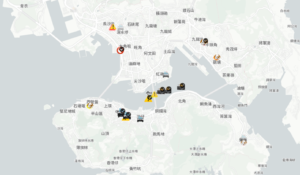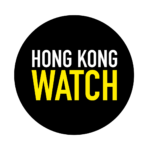As tension rises between Hong Kong’s police and student activists barricaded inside university campuses, Chinese President Xi Jinping has reiterated mainland support for Hong Kong Chief Executive Carrie Lam, saying that the priority was to stop the violence, Foreign Policy reports.
China has accused Western countries of foreign interference. Meanwhile, U.S. senators are seeking (HT: Foreign Policy) to quickly pass legislation – the Hong Kong Human Rights and Democracy Act – that would scrutinize Hong Kong’s special treatment by the United States and impose sanctions on officials.
The mainland’s Communist authorities have hinted at the possibility of intervention. The latest warning came from Hu Xijin, editor-in-chief of the state-run nationalist tabloid Global Times, the South China Morning Post reports.

HK Tech Crunch
Hu told the city’s police force: “Behind you there are not only the [patriotic] Hong Kong public and the nation, but also the country’s paramilitary police and the People’s Liberation Army Hong Kong garrison, who can enter Hong Kong and offer support in accordance with the Basic Law when needed.”
But while Beijing has a comprehensive strategy on how to deal with Hong Kong in the medium to long term, it lacks a clear solution in the short term to shut down the protests effectively, said Adam Ni, a China specialist at Macquarie University in Sydney.
“We’ve seen a trajectory of increasing rhetoric and tough line response from Beijing, but I think we’re still some way off from Beijing actually sending in the security forces as it’s threatened on multiple occasions implicitly or explicitly,” he told the SCMP.
 The vast majority of Hong Kong’s protesters are peaceful and they are looking to the world to assist, Benedict Rogers and Johnny Patterson of Hong Kong Watch, write for TIME:
The vast majority of Hong Kong’s protesters are peaceful and they are looking to the world to assist, Benedict Rogers and Johnny Patterson of Hong Kong Watch, write for TIME:
They focus on the Human Rights and Democracy Act because it contains powerful provisions which would strengthen their hand. It guarantees that pro-democracy protestors who are arrested do not find their applications for visas blocked after a political trial; it ensures that the violators of human rights bear the consequences of their actions through the application of Magnitsky sanctions; and it sends a clear signal to China that it cannot erode the city’s autonomy and freedoms while reaping the benefits, by strengthening State Department scrutiny of Hong Kong’s freedoms.